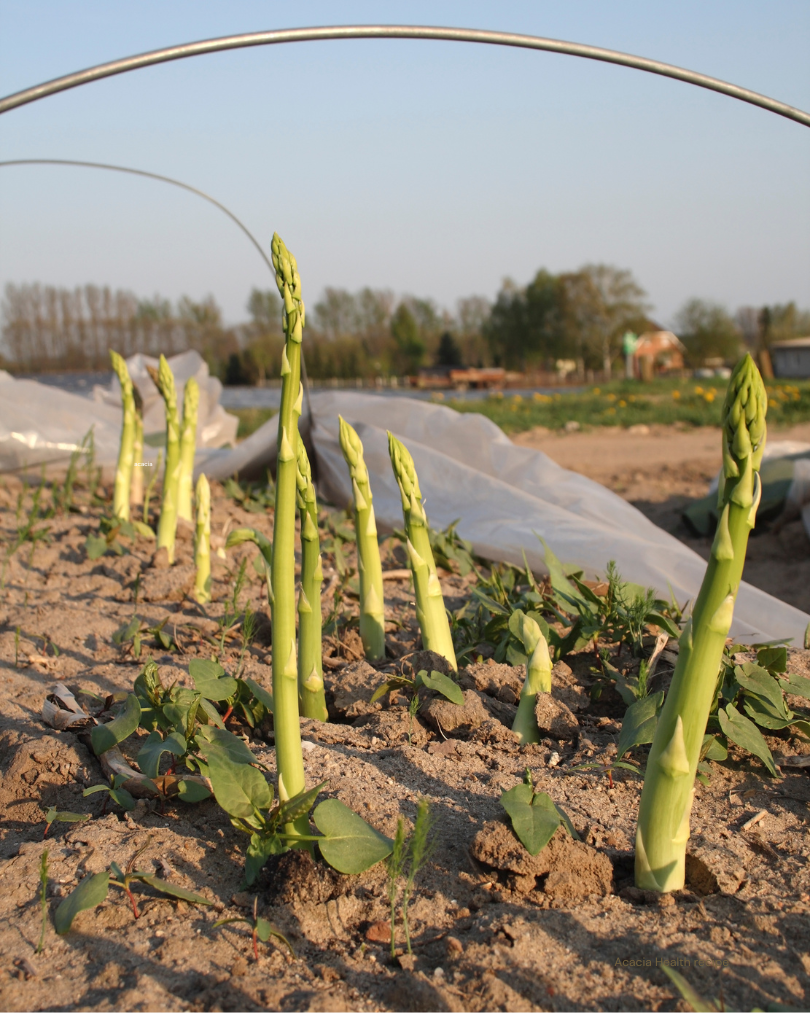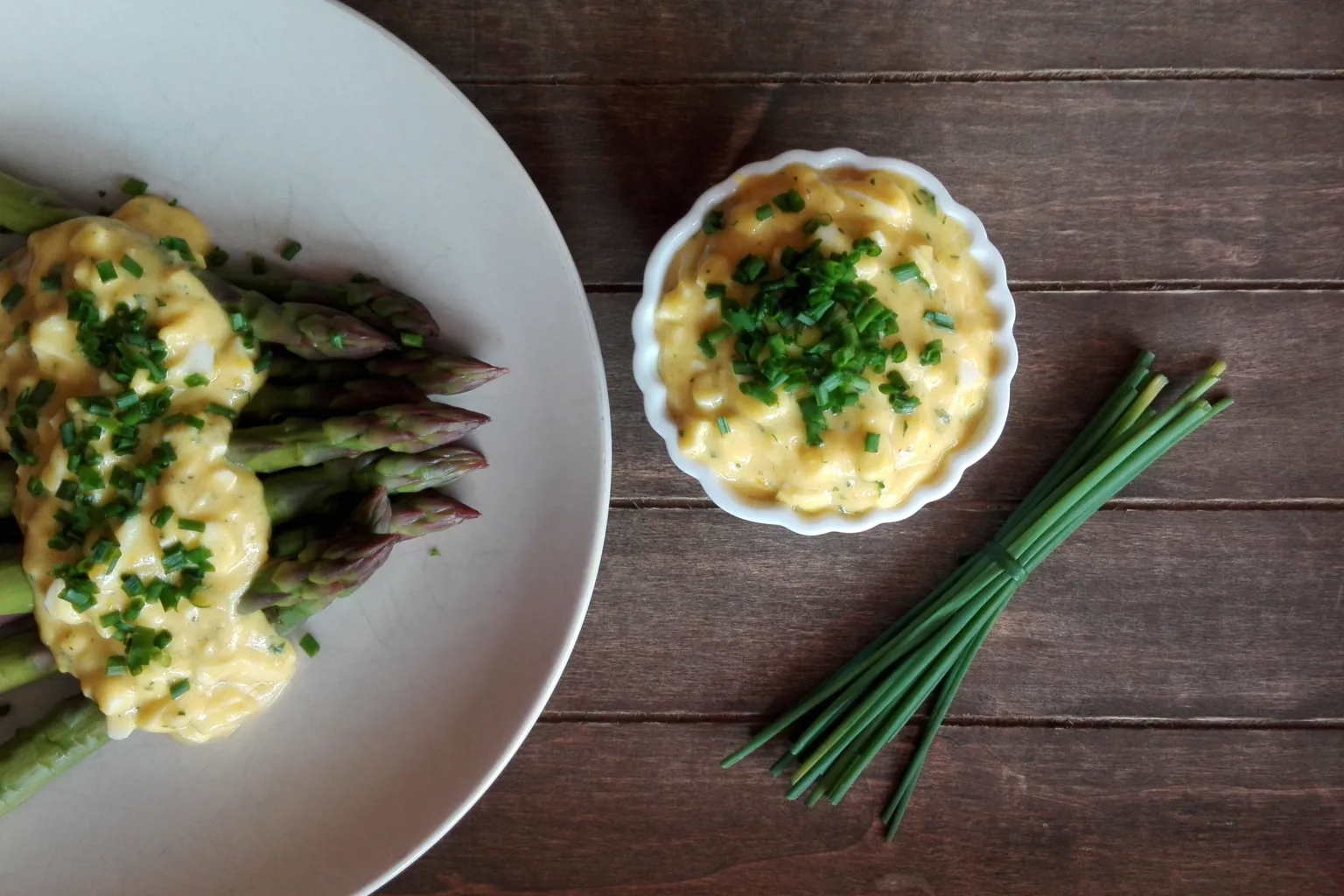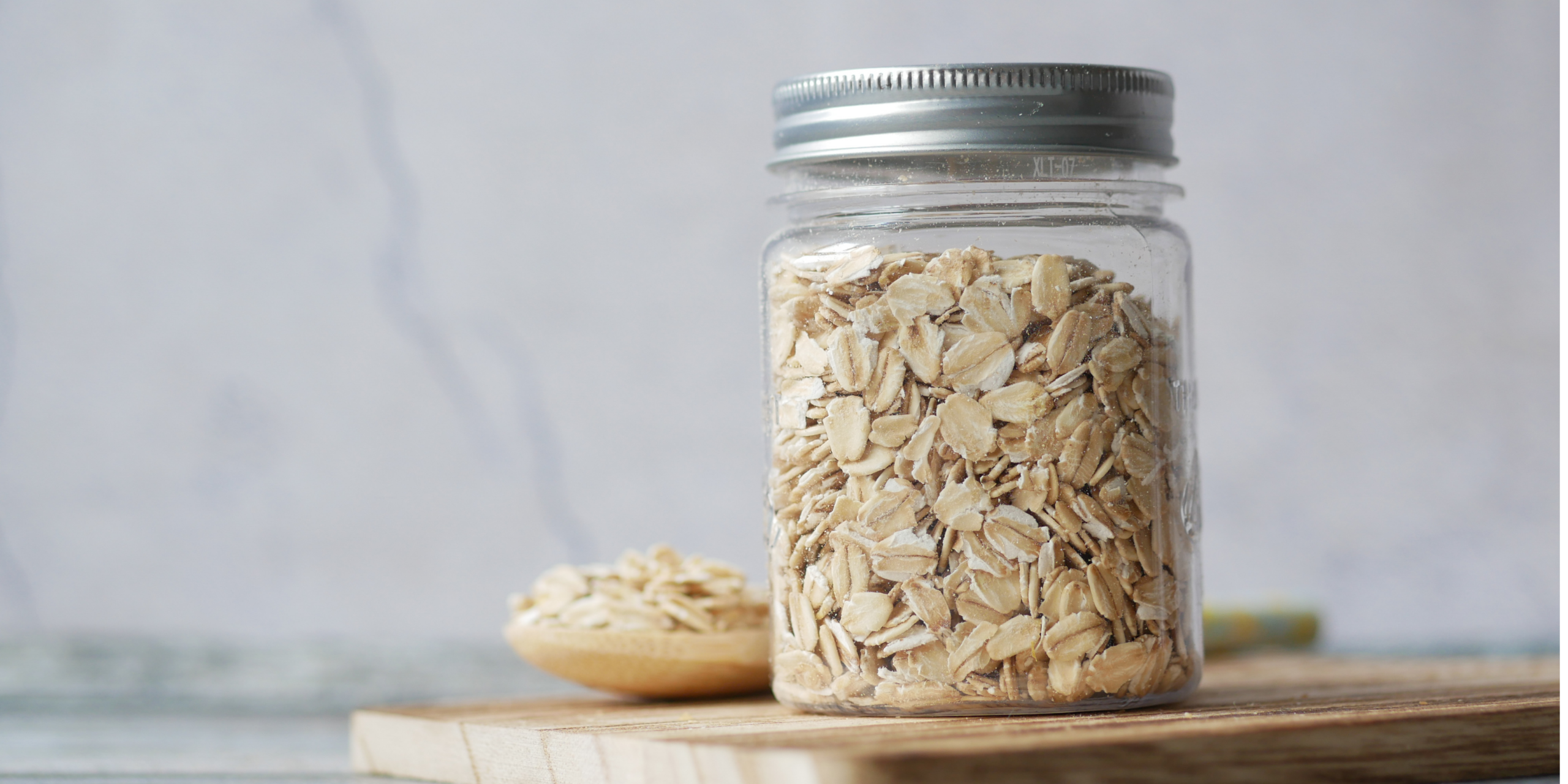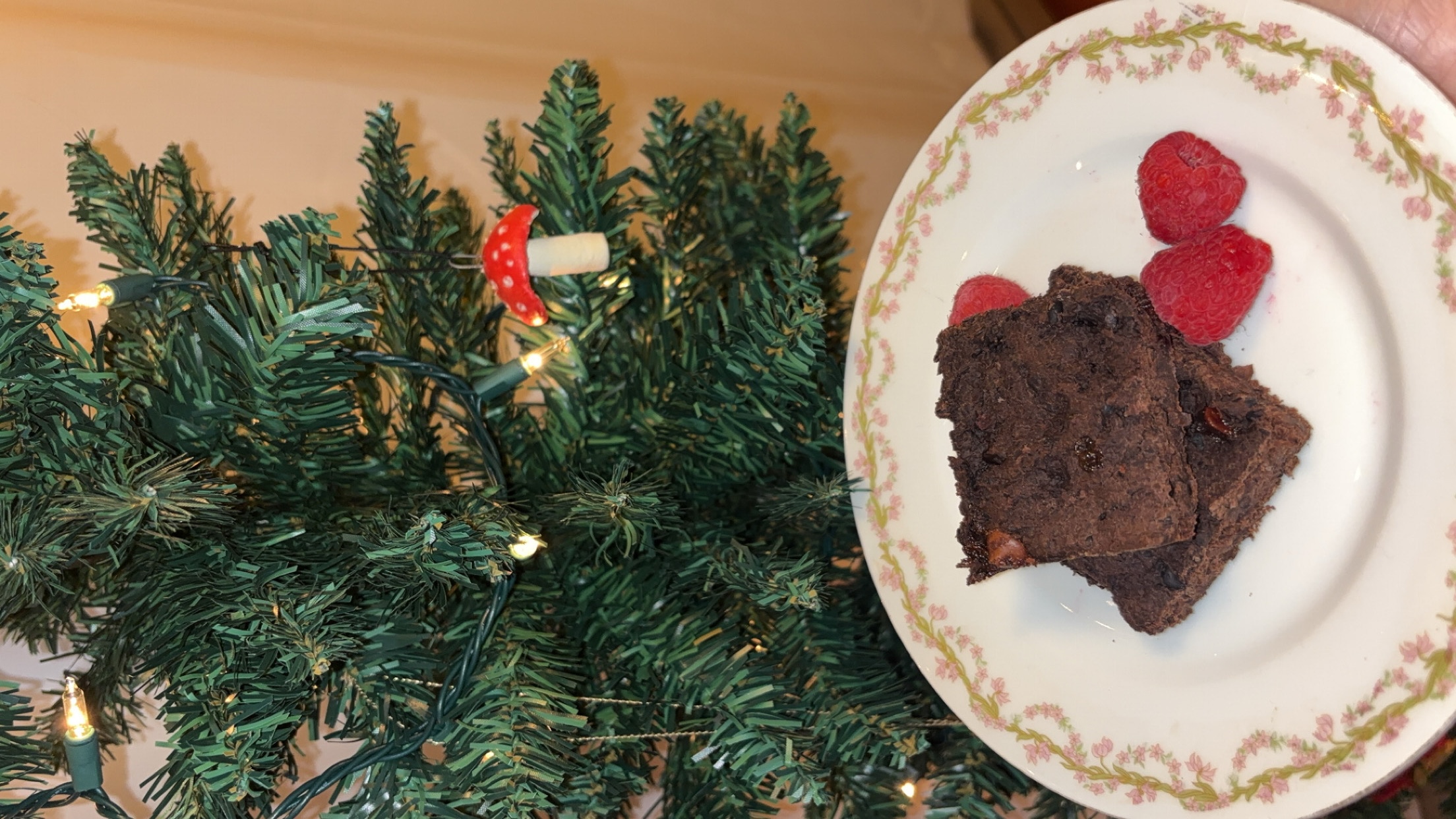As spring rolls in, there’s no better way to celebrate the season than with a vibrant, flavorful dish like this Charred Asparagus with Bolzanina Sauce. Asparagus is in peak season from April to June, making it the ideal meal addition. Whether as a side, a light appetizer, or a refreshing addition to salads and soups, this versatile veggie brings a fresh crunch and plenty of nutrients. Let’s dive into why asparagus is a must-have this spring and how it can elevate your diet.
Why Asparagus Should Be Your Go-To Veggie This Spring
Asparagus is packed with nutrients that your body will love. It’s a rich source of folate, a B vitamin that supports red blood cell formation and is especially important during pregnancy to help with the healthy development of the baby’s organs. Just 10 cooked asparagus spears give you 220 micrograms of folate, nearly half your daily requirement!
In addition to folate, asparagus provides a boost of vitamin C. Ten cooked spears contain 25 mg of this powerful antioxidant, which helps support your immune system and skin health. And let’s not forget about fibre—another reason to love asparagus! It’s an excellent source of dietary fibre, which is great for gut health. Fibre helps fuel your good gut bacteria and it can play a role in managing cholesterol, easing digestive issues like irritable bowel syndrome and improving overall digestion.

For more on how fibre supports your health, check out my blog post on its many benefits!
Eggs: A Protein Boost
This dish would not be complete without the eggs – an excellent source of protein and vitamins. Did you know that just one large egg contains about 6 grams of protein? Protein is crucial for muscle repair, immune function and overall health. Beyond protein, egg yolks are rich in fat-soluble vitamins like A, D and E, as well as B12, riboflavin, selenium and folate. Certain eggs are also enriched with omega-3 fatty acids, which may help reduce the risk of heart disease.
When combined with fresh asparagus and Bolzanina sauce, eggs bring a creamy texture and extra flavor to this dish, making it a satisfying and nutrient-dense option.
Charred Asparagus with Bolzanina Sauce
Yields: 2 servings
Total time: 30 minutes
Difficulty: 1/3 – easy
This spring, make sure to enjoy some local, fresh asparagus. It’s a tasty way to support your health while savoring the season’s best flavors.
Ingredients
- 1 bunch of asparagus (trimmed)
- 5 large eggs
- 2 tbsp horseradish
- 2 tbsp mayonnaise (or light mayonnaise)
- 2 tsp Dijon mustard
- 1 tbsp white wine vinegar
- Fresh chives (for garnish)
- Cooking oil (for pan-searing)
Steps
- Prepare the asparagus by trimming the tough ends off and giving them a good rinse under cold water.
- In a pot, bring water to a boil. Add 5 eggs and cook for 8 minutes for soft-boiled eggs with firm yolks.
- In a medium bowl, mix the horseradish, mayonnaise, Dijon mustard, and white wine vinegar until smooth. Set aside.
- Once the eggs are boiled, transfer them to a bowl of cold water and let them sit for 5-10 minutes to cool down. Peel the eggs, then separate the yolks from the whites. Add the yolks to the bowl with the sauce and mix until well combined.
- Finely chop the egg whites and fold them into the sauce, adding texture.
- Heat a pan over medium-high heat and add a splash of cooking oil. Add the asparagus and cook for 5-6 minutes on each side until charred and tender.
- Arrange the charred asparagus on a serving plate and spoon the sauce generously over the top.
- Sprinkle freshly chopped chives on top for a burst of color and flavor. Serve immediately and enjoy!
Want to learn more about how a dietitian can help you towards your health goals? Check out our Registered Dietitian page for more info and how to book. Our dietitian is located in Victoria BC if you prefer in-person appointments, otherwise they are available virtually for anywhere.
- Olas B. A Review of the Pro-Health Activity of Asparagus officinalis L. and Its Components. Foods. 2024 Jan 16;13(2):288. doi: 10.3390/foods13020288. PMID: 38254589; PMCID: PMC10814860. https://pubmed.ncbi.nlm.nih.gov/38254589/




